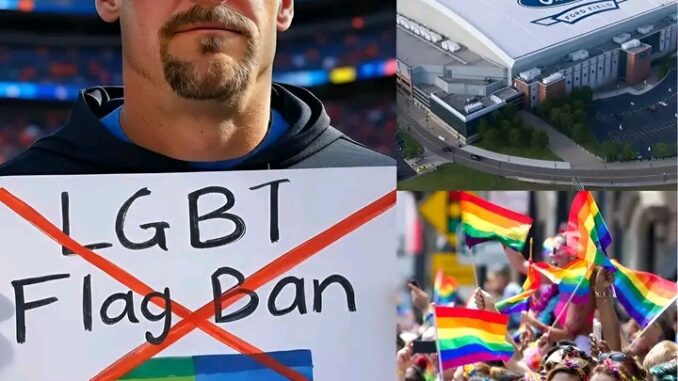
Dan Campbell’s reported declaration—“I won’t sell tickets to Pride Month worshippers to my stadium”—sends a ripple of panic through the NFL, not just because of its blunt tone, but because it surfaces unresolved tensions between inclusivity and the game. Here’s why it matters:
Culture Clash at the Core
Campbell’s statement starkly separates performance from politics, reinforcing his persona as a “no-nonsense” coach focused solely on football. But cheering “performance, not woke” echoes familiar rhetoric that risks alienating fans and players who see value in teams embracing social causes. NFL franchises have increasingly intertwined identity and activism, making any departure from that direction a potential flashpoint.
- Fanbase and Brand Fallout
The NFL isn’t just football—it’s brand, business, and image. Turning away a visibly active segment of fans (LGBTQ+ allies among them) isn’t merely a personal stance—it could alienate sponsors, partners, and a broader audience during a month historically embraced by sports leagues. - Setting a Precedent
When a high-profile coach labels Pride Month a distraction, it normalizes a narrative that social progress undermines sport. That ripple may embolden others in the league—players, coaches, front offices—to make similar declarations, disrupting the carefully built culture of inclusivity. - Polarization Within the NFL
The league has worked hard to balance competitiveness with culture. Campbell’s words threaten to tip that balance, prompting debates in locker rooms and boardrooms alike about the proper boundaries of social messaging in a performance-driven arena.
At its heart, this moment spotlights a vital intersection: Can the NFL remain a global – and unifying – spectacle if its
leaders draw exclusionary lines? Campbell’s stance isn’t just a provocateur’s quote—it’s a test for institutional values, commercial calculation, and the future identity of American sports.
Leave a Reply